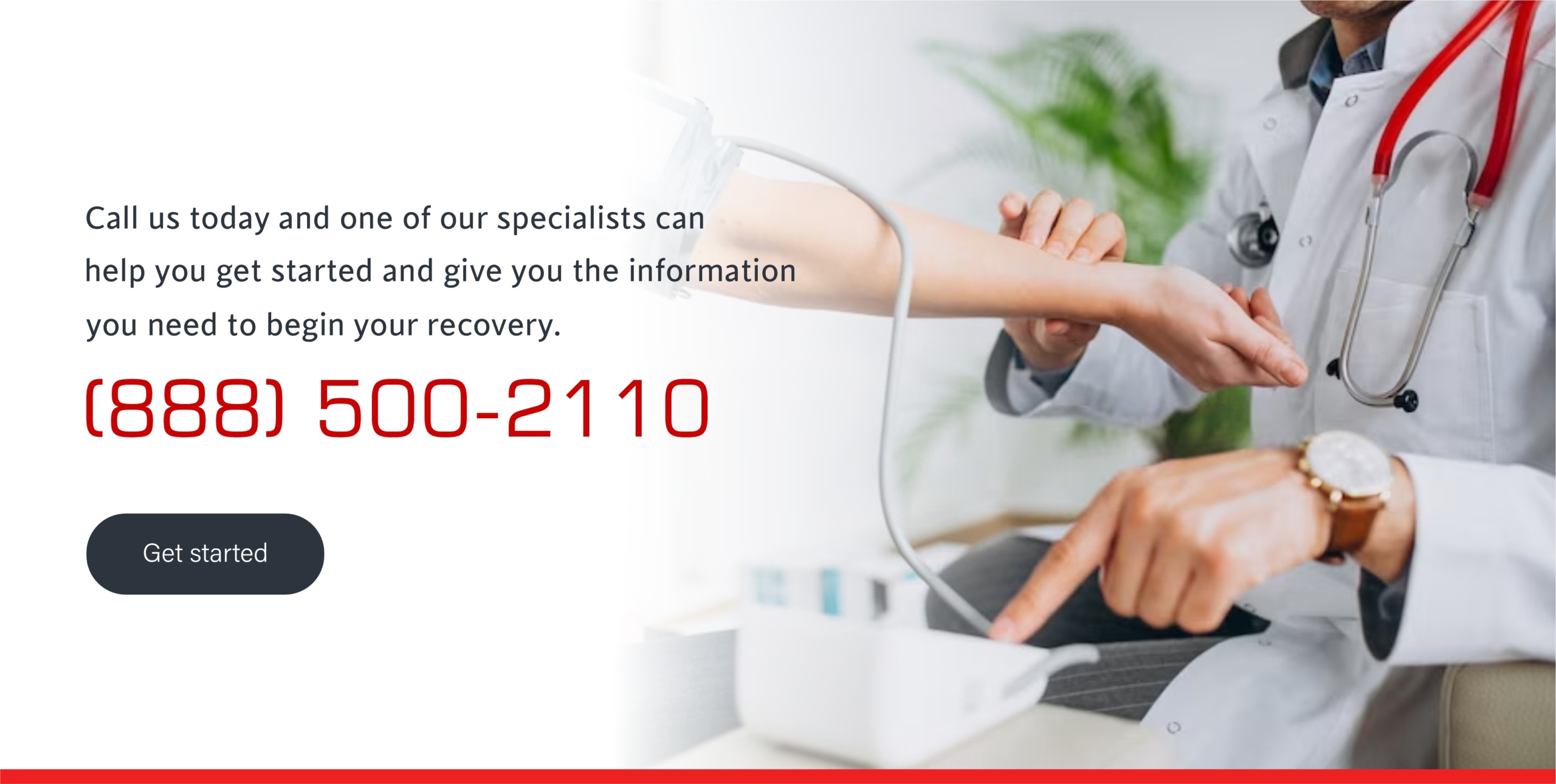In the journey of recovery, couples often find themselves at a crossroads where individual healing intersects with the shared path of their relationship. Couples Rehab recognizes that the road to recovery is not solely about overcoming addiction or addressing behavioral issues; it is about fostering a holistic sense of well-being that nourishes both individuals and their partnership. Integrating wellness practices into couples rehabilitation is an innovative approach that emphasizes the symbiotic relationship between physical, mental, and emotional health. This comprehensive method aims to not only heal but also strengthen the bond between partners, setting the foundation for a healthier, more resilient future together.
Couples Rehab Services
I. Importance of Wellness in Rehabilitation
In the context of couples rehabilitation, wellness practices serve as the bedrock upon which successful recovery is built. Incorporating wellness into the rehabilitation process not only addresses the physical and mental health of individuals but also enhances the relational dynamics between partners. A holistic approach to wellness encompasses physical, mental, and emotional dimensions, each playing a crucial role in the overall rehabilitation journey.
A. Physical Wellness
Exercise Routines
Physical activity is a cornerstone of wellness and rehabilitation. Regular exercise routines help to improve cardiovascular health, increase energy levels, and reduce stress. For couples, engaging in physical activities together can foster a sense of teamwork and mutual support. Structured exercise programs can include activities such as yoga, swimming, or even daily walks, tailored to the fitness levels and preferences of each couple.
Nutrition Plans
Healthy eating is fundamental to physical wellness. Nutrition plans should be designed to provide balanced, nutrient-dense meals that support the body’s healing processes. Couples can benefit from learning to prepare healthy meals together, which not only improves their dietary habits but also strengthens their bond through shared culinary activities. Nutritional education sessions can help couples understand the importance of diet in their rehabilitation journey.
Sleep Hygiene
Adequate sleep is vital for both physical and mental health. Establishing good sleep hygiene practices can significantly impact the effectiveness of rehabilitation. Couples can work together to create a sleep-friendly environment, establish consistent sleep routines, and support each other in overcoming sleep-related challenges. Improving sleep quality can lead to better mood regulation, cognitive function, and overall well-being.
B. Mental Wellness
Stress Management
Stress is an inevitable part of life, but effective stress management techniques can mitigate its impact. Teaching couples how to manage stress through activities like deep breathing exercises, meditation, and relaxation techniques can enhance their resilience. By practicing these techniques together, couples can learn to support each other in stressful situations, fostering a more harmonious relationship.
Mindfulness Practices
Mindfulness practices, such as meditation and mindful breathing, can help individuals stay present and focused. For couples in rehabilitation, mindfulness can improve emotional regulation and reduce instances of impulsive behavior. Incorporating mindfulness into daily routines can lead to a deeper understanding of oneself and one’s partner, promoting empathy and connection.
Counseling Services
Professional counseling services provide a safe space for couples to explore their thoughts, feelings, and behaviors. Therapy sessions can help couples address underlying issues, develop healthier communication patterns, and set realistic goals for their rehabilitation journey. Counseling can be instrumental in helping couples rebuild trust, resolve conflicts, and develop a deeper emotional connection.
C. Emotional Wellness
Communication Skills
Effective communication is the foundation of a healthy relationship. Teaching couples how to communicate openly and honestly can prevent misunderstandings and conflicts. Workshops and role-playing exercises can help couples practice active listening, express their needs and emotions constructively, and develop mutual respect.
Emotional Support Systems
A strong emotional support system is crucial for successful rehabilitation. Encouraging couples to lean on each other for emotional support can strengthen their bond and provide a sense of security. Group therapy sessions and support groups can also offer additional layers of support, allowing couples to share their experiences and learn from others in similar situations.
Conflict Resolution
Conflict is a natural part of any relationship, but learning how to resolve conflicts healthily is essential for long-term success. Couples can benefit from conflict resolution strategies that emphasize empathy, compromise, and problem-solving. By addressing conflicts constructively, couples can prevent resentment from building up and maintain a positive, supportive relationship.
II. Implementing Wellness Programs
Integrating wellness practices into couples rehabilitation requires a structured, comprehensive approach to ensure that both partners can benefit from the program. This section outlines the key steps involved in implementing effective wellness programs at Couples Rehab, from initial assessments to staff training and involvement.
A. Assessment and Planning
Initial Wellness Assessments
The journey toward integrating wellness begins with a thorough initial assessment for each couple. This assessment involves evaluating the physical, mental, and emotional health of both partners. Professional counselors and healthcare providers conduct these assessments through interviews, questionnaires, and diagnostic tests. The goal is to identify specific areas where each partner may need support and to understand the couple’s overall dynamic.
Customized Wellness Plans
Based on the initial assessments, customized wellness plans are developed for each couple. These plans are tailored to address the unique needs and preferences of the partners, ensuring that both individuals are engaged and committed. A comprehensive wellness plan might include exercise routines, nutrition guidelines, mindfulness practices, and counseling sessions. Importantly, these plans also outline goals and milestones to track the couple’s progress throughout their rehabilitation journey.
Monitoring Progress
Regular monitoring and evaluation are vital components of successful wellness programs. Couples Rehab employs a systematic approach to track the progress of each couple. Regular check-ins, progress reports, and feedback sessions help to identify any issues or adjustments needed in the wellness plan. This ongoing monitoring ensures that the couple remains on track and continues to benefit from the program.
B. Integration into Daily Routine
Scheduled Activities
To maximize the benefits of wellness practices, they must be seamlessly integrated into the daily routine of the rehab program. Scheduled activities, such as morning yoga sessions, nutritional workshops, and evening mindfulness exercises, create a structured environment that promotes consistent engagement. These activities not only enhance physical and mental well-being but also provide opportunities for couples to bond and support each other.
Couples Workshops
Workshops designed specifically for couples are a cornerstone of the wellness program at Couples Rehab. These workshops cover a range of topics, from communication skills and conflict resolution to stress management and emotional intelligence. Facilitated by trained professionals, the workshops offer a safe space for couples to learn, practice, and refine their skills. The interactive nature of these sessions encourages active participation and fosters a sense of community among the participants.
Follow-Up Sessions
Follow-up sessions play a crucial role in reinforcing the lessons learned during the wellness program. These sessions provide an opportunity for couples to reflect on their progress, address any challenges, and receive additional guidance. Regular follow-ups help to maintain momentum and ensure that the wellness practices become a sustainable part of the couple’s lifestyle.
C. Staff Training and Involvement
Training Programs for Staff
The successful implementation of wellness programs relies heavily on the expertise and commitment of the staff. Comprehensive training programs are essential to equip the staff with the necessary skills and knowledge. These training programs cover various aspects of wellness, including physical fitness, nutrition, mental health, and emotional support. By fostering a well-informed and empathetic team, Couples Rehab ensures that the staff can effectively guide and support the couples.
Collaborative Approach
A collaborative approach is fundamental to the integration of wellness practices. Staff members from different disciplines—such as therapists, nutritionists, and fitness trainers—work together to provide holistic support to the couples. Regular team meetings and interdisciplinary case reviews facilitate communication and ensure that all aspects of the couple’s wellness are addressed cohesively.
Feedback Mechanisms
Feedback mechanisms are integral to the continuous improvement of the wellness programs. Couples Rehab encourages feedback from both the participants and the staff to identify strengths and areas for improvement. Surveys, suggestion boxes, and open forums are some of the tools used to gather feedback. This input is invaluable in refining the wellness programs and ensuring they remain effective and relevant.

III. Benefits of Wellness Integration
Integrating wellness practices into couples rehabilitation programs offers numerous benefits that can significantly enhance the recovery process and strengthen the relationship between partners. These benefits span several dimensions, including building trust and intimacy, improving communication, and strengthening emotional bonds.
A. Building Trust and Intimacy
Trust-Building Exercises
Trust is the cornerstone of any healthy relationship, and it can be particularly fragile during rehabilitation. Trust-building exercises, such as partnered challenges, shared goals, and honesty exercises, help couples rebuild the confidence they have in each other. These activities encourage openness and vulnerability, creating an environment where trust can flourish.
Intimacy Workshops
Intimacy is about more than just physical closeness; it encompasses emotional and mental connection as well. Intimacy workshops focus on helping couples understand each other’s needs and desires, breaking down barriers that may have formed due to past conflicts or misunderstandings. Techniques such as guided touch, eye-gazing, and shared storytelling can help couples reconnect on a deeper level.
Shared Experiences
Engaging in shared experiences, such as wellness retreats, adventure therapy, and joint hobbies, fosters a sense of unity and partnership. These activities provide couples with opportunities to create positive memories, reinforcing their bond and commitment to each other as they navigate the rehabilitation process together.
B. Improving Communication
Active Listening Techniques
Effective communication is vital for any relationship, particularly during rehabilitation when emotions can run high. Active listening techniques, such as reflective listening, summarizing, and validating, teach couples to truly hear and understand each other. This fosters empathy and reduces misunderstandings, paving the way for more meaningful and constructive conversations.
Non-Verbal Communication
Non-verbal communication, including body language, facial expressions, and physical touch, plays a crucial role in how couples interact. Couples rehabilitation programs that include training in non-verbal communication help partners become more attuned to each other’s cues, enhancing their ability to connect and respond appropriately.
Conflict Management Strategies
Disagreements are inevitable in any relationship, but how couples handle conflict can make a significant difference. Conflict management strategies, such as “I” statements, time-outs, and compromise techniques, equip couples with the tools they need to address disagreements constructively. This reduces the likelihood of escalation and promotes resolution and understanding.
C. Strengthening Emotional Bonds
Emotional Intelligence Activities
Emotional intelligence involves recognizing, understanding, and managing one’s own emotions, as well as empathizing with the emotions of others. Activities that enhance emotional intelligence, such as journaling, role-playing, and emotional check-ins, help couples become more attuned to their own and each other’s emotional states. This leads to more compassionate and supportive interactions.
Empathy Development
Empathy is the ability to put oneself in another’s shoes and genuinely understand their perspective. Empathy development exercises, such as perspective-taking activities and empathy circles, encourage couples to see things from each other’s viewpoint. This fosters a deeper emotional connection and reduces feelings of isolation and misunderstanding.
Shared Goal Setting
Setting and working towards shared goals helps couples align their efforts and envision a future together. Whether these goals are related to their rehabilitation journey or broader life aspirations, the act of setting and striving for them together builds a sense of partnership and mutual support. This shared vision can be a powerful motivator and a unifying force in their relationship.
IV. Wellness Practices into Couples Rehabilitation at Couples Rehab
Integrating wellness practices into couples rehabilitation offers a holistic approach that addresses the multifaceted needs of individuals and their relationships. By focusing on physical, mental, and emotional wellness, Couples Rehab can provide a comprehensive program that enhances the recovery process and fosters a supportive and nurturing environment for both partners.
The importance of wellness in rehabilitation cannot be overstated. Physical wellness routines, including exercise, nutrition, and sleep hygiene, play a crucial role in restoring and maintaining overall health. Mental wellness strategies, such as stress management, mindfulness practices, and counseling services, equip couples with the tools to navigate the emotional challenges of rehabilitation. Emotional wellness, through improved communication skills, robust support systems, and effective conflict resolution, strengthens the relational foundation necessary for long-term success.
Implementing these wellness programs requires a thorough assessment and planning phase, ensuring that each couple’s unique needs are met through customized wellness plans. Integrating these practices into the daily routine with scheduled activities, workshops, and follow-up sessions ensures consistency and accountability. Furthermore, staff training and involvement are critical, as a collaborative approach and continuous feedback can greatly enhance the effectiveness of the program.
The benefits of incorporating wellness practices are manifold. Building trust and intimacy, improving communication, and strengthening emotional bonds are vital outcomes that contribute to a successful rehabilitation journey. Trust-building exercises, intimacy workshops, and shared experiences help couples reconnect and rebuild their relationships. Effective communication techniques and conflict management strategies reduce misunderstandings and foster a deeper connection. Emotional intelligence activities, empathy development, and shared goal-setting initiatives further solidify the emotional bonds between partners.
In conclusion, the integration of wellness practices into couples rehabilitation at Couples Rehab is a transformative approach that addresses the comprehensive needs of both individuals and their relationships. By promoting physical, mental, and emotional wellness, couples can achieve a more fulfilling and resilient partnership, ultimately enhancing their overall quality of life. The commitment to holistic wellness not only supports the rehabilitation process but also lays a strong foundation for lasting relationship satisfaction and personal well-being.

FAQs
- Q: How do wellness practices enhance couples rehabilitation at Couples Rehab? A: Integrating wellness practices into couples rehabilitation at Couples Rehab enhances the overall treatment experience by promoting physical, emotional, and spiritual well-being. These practices help couples develop healthy coping mechanisms, reduce stress, and improve their overall quality of life.
- Q: What are some examples of wellness practices integrated into couples rehabilitation at Couples Rehab? A: Couples Rehab incorporates various wellness practices, such as mindfulness meditation, yoga, fitness activities, nutrition education, and holistic therapies. These practices address the mind, body, and spirit, supporting couples in their recovery journey.
- Q: How does mindfulness meditation benefit couples in rehabilitation? A: Mindfulness meditation is a powerful practice that helps couples in rehabilitation develop present-moment awareness, reduce anxiety, enhance emotional regulation, and improve communication. It fosters a deeper connection between partners and supports their overall well-being.
- Q: Can couples with different fitness levels participate in wellness practices at Couples Rehab? A: Yes, wellness practices at Couples Rehab are tailored to accommodate couples with different fitness levels. The programs are designed to be inclusive and provide options for individuals of all abilities, ensuring that everyone can participate and benefit from the practices.
- Q: How does nutrition education contribute to couples rehabilitation? A: Nutrition education plays a crucial role in couples rehabilitation by promoting healthy eating habits and providing couples with the knowledge they need to support their physical and mental well-being. A balanced diet can enhance energy levels, mood stability, and overall recovery.
- Q: Are wellness practices optional or mandatory in couples rehabilitation at Couples Rehab? A: Wellness practices are typically offered as part of the comprehensive treatment approach at Couples Rehab but are not mandatory. Couples have the choice to engage in the wellness practices that resonate with them and align with their goals and preferences.
- Q: Can couples continue practicing wellness after completing rehabilitation at Couples Rehab? A: Absolutely. Couples Rehab encourages couples to continue practicing wellness even after completing rehabilitation. The skills and habits developed during treatment can be integrated into their daily lives, supporting long-term recovery and overall well-being.
- Q: How can couples access wellness practices at Couples Rehab? A: Couples can access wellness practices at Couples Rehab by participating in the various programs and activities offered. The rehab center provides guidance, support, and resources to help couples engage in wellness practices that suit their needs and goals.
- Q: Are wellness practices effective in improving relationship dynamics during rehabilitation? A: Yes, wellness practices are effective in improving relationship dynamics during rehabilitation at Couples Rehab. By promoting self-care, stress reduction, and emotional well-being, these practices create a solid foundation for couples to cultivate healthier and more fulfilling relationships.
- Q: How do wellness practices complement other treatment modalities in couples rehabilitation? A: Wellness practices complement other treatment modalities in couples rehabilitation by addressing the holistic needs of individuals. They work synergistically with therapy, counseling, and other interventions to support couples in their recovery, providing a well-rounded approach to healing.












